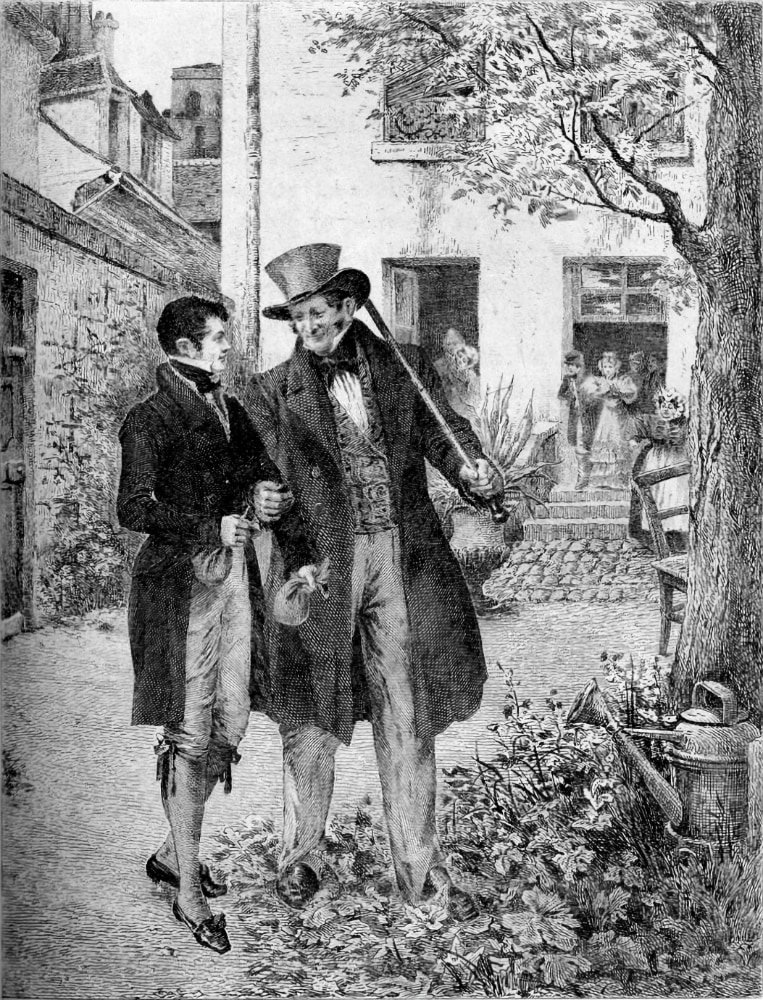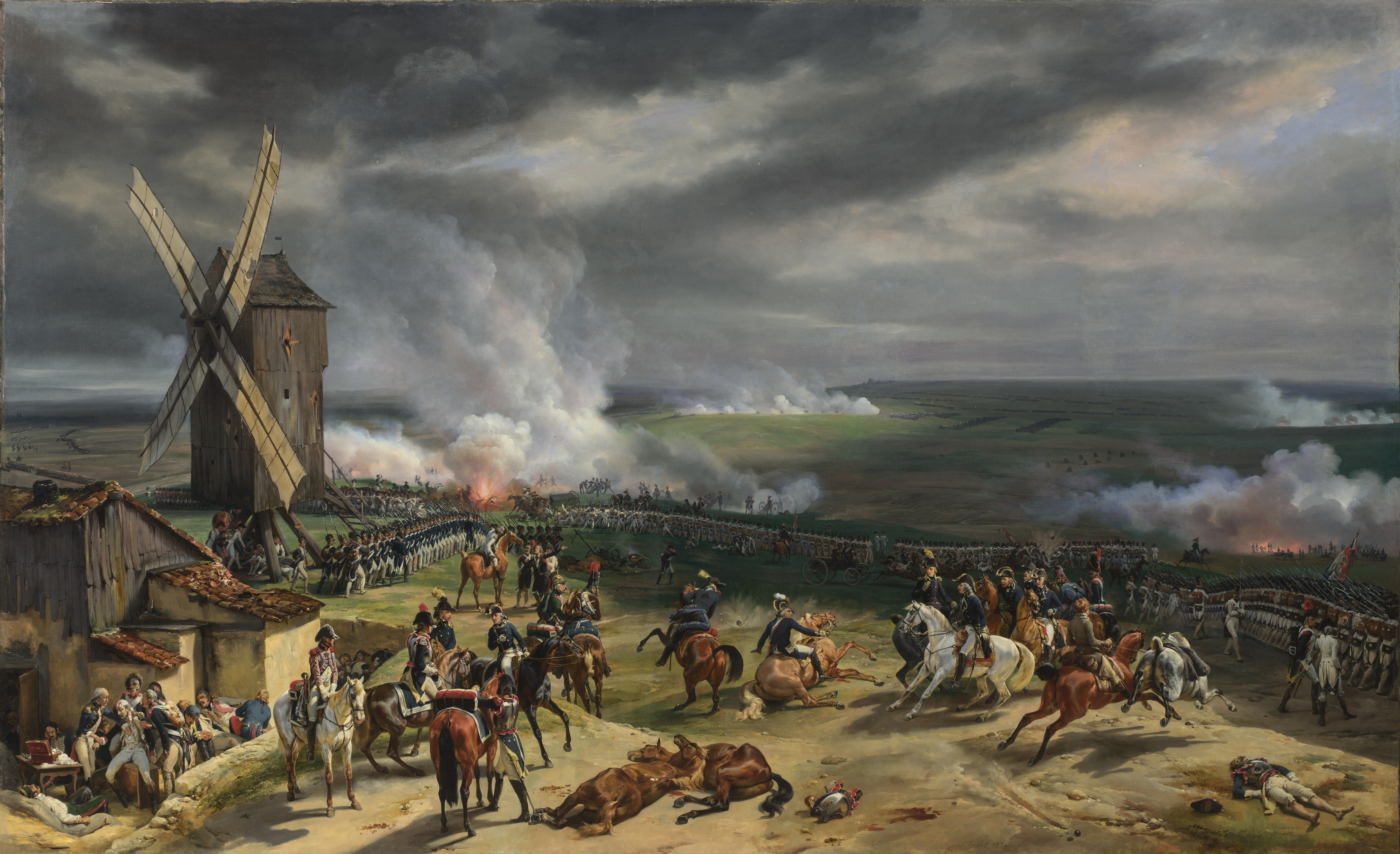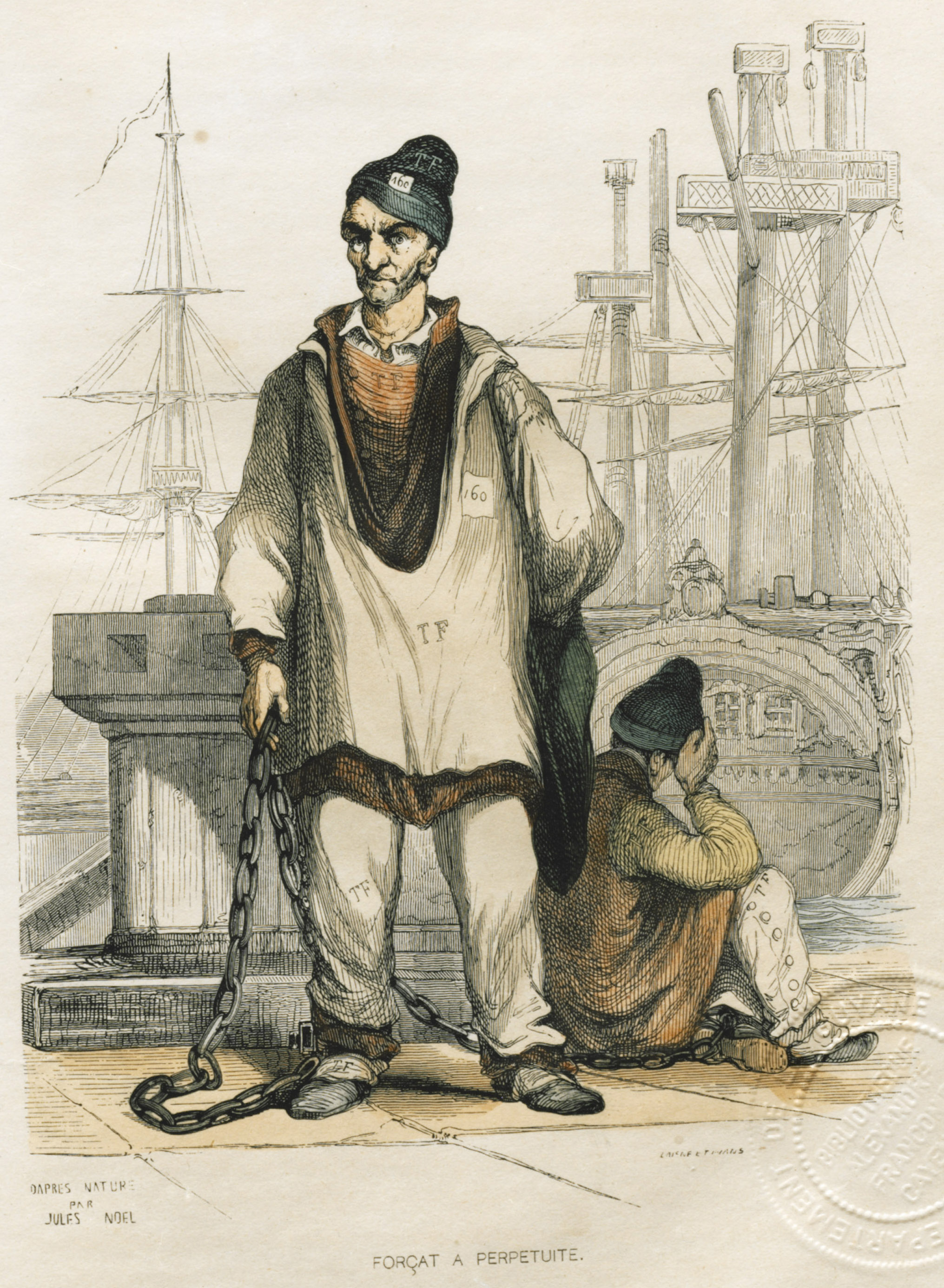|
Vautrin
Vautrin is a character from the novels of French writer Honoré de Balzac in the ''La Comédie humaine'' series. His real name is Jacques Collin . He appears in the novels '' Le Père Goriot'' (Father Goriot, 1834/35) under the name Vautrin, and in ''Illusions perdues'' (Lost illusions, 1837–1843) and ''Splendeurs et misères des courtisanes'' (Scenes from a Courtesan's Life, 1838–1844), the sequel of ''Illusions perdues'', under the name of Abbé Carlos Herrera. In prison, he got the nickname "Trompe-la-Mort" ("Dodgedeath" or "Cheats-Death"), because he managed to avoid the death sentence repeatedly. Background By the time the ''Comédie humaine'' series begins, Jacques Collin is an escaped convict and criminal mastermind fleeing from the police. The character first appears in the La Comédie humaine series using the name of Vautrin, so he is usually referred to in literary criticism under this name. Balzac was inspired to the character by Eugène François Vidocq (1775– ... [...More Info...] [...Related Items...] OR: [Wikipedia] [Google] [Baidu] |
Splendeurs Et Misères Des Courtisanes
''Splendeurs et misères des courtisanes'', translated variously as ''The Splendors and Miseries of Courtesans'', ''A Harlot High and Low'', or as ''Lost Souls'', is an 1838-1847 novel by French novelist Honoré de Balzac, published in four initially separate parts: * ''Esther Happy'' (''Esther heureuse'', 1838) * ''What Love Costs an Old Man'' (''À combien l’amour revient aux vieillards'', 1843) * ''The End of Evil Ways'' (''Où mènent les mauvais chemins'', 1846) * ''The Last Incarnation of Vautrin'' (''La Dernière incarnation de Vautrin'', 1847) It continues the story of Lucien de Rubempré, who was a main character in ''Illusions perdues'', a preceding Balzac novel. ''Splendeurs et misères des courtisanes'' forms part of Balzac's ''La Comédie humaine''. Plot summary Lucien de Rubempré and the self-proclaimed abbey Carlos Herrera (Vautrin) have made a pact, in which Lucien will arrive at success in Paris if he agrees to follow Vautrin's instructions blindly. Esther v ... [...More Info...] [...Related Items...] OR: [Wikipedia] [Google] [Baidu] |
Eugène François Vidocq
Eugène-François Vidocq (; 24 July 1775 – 11 May 1857) was a French criminal turned criminalist, whose life story inspired several writers, including Victor Hugo, Edgar Allan Poe and Honoré de Balzac. The former criminal became the founder and first director of the crime-detection Sûreté nationale as well as the head of the first known private detective agency. Vidocq is considered to be the father of modern criminologySiegel, Jay A.: ''Forensic Science: The Basics''. CRC Press, 2006, , S. 12.Conser, James Andrew and Russell, Gregory D.: ''Law Enforcement in the United States.'' Jones & Bartlett Publishers, 2005, , S. 39. and of the French police department. He is also regarded as the first private detective. Biography Eugène François Vidocq was born in Arras, northern France, during the night of 23/24 July 1775, in the Rue du Miroir-de-Venise, nowadays the Rue Eugène-François Vidocq. He was the third child of Henriette Françoise Vidocq (maiden name Dion, 1744–182 ... [...More Info...] [...Related Items...] OR: [Wikipedia] [Google] [Baidu] |
Honoré De Balzac
Honoré de Balzac ( , more commonly , ; born Honoré Balzac;Jean-Louis Dega, La vie prodigieuse de Bernard-François Balssa, père d'Honoré de Balzac : Aux sources historiques de La Comédie humaine, Rodez, Subervie, 1998, 665 p. 20 May 1799 – 18 August 1850) was a French novelist and playwright. The novel sequence ''La Comédie humaine'', which presents a panorama of post-Napoleonic French life, is generally viewed as his '' magnum opus''. Owing to his keen observation of detail and unfiltered representation of society, Balzac is regarded as one of the founders of realism in European literature. He is renowned for his multi-faceted characters; even his lesser characters are complex, morally ambiguous and fully human. Inanimate objects are imbued with character as well; the city of Paris, a backdrop for much of his writing, takes on many human qualities. His writing influenced many famous writers, including the novelists Émile Zola, Charles Dickens, Marcel Proust, ... [...More Info...] [...Related Items...] OR: [Wikipedia] [Google] [Baidu] |
Eugène De Rastignac
Eugène de Rastignac () is a fictional character from , a series of novels by Honoré de Balzac. He appears as a main character in (1835), and his social advancement in the post-revolutionary French world depicted by Balzac can be followed through Rastignac's various appearances in other books of the series. Rastignac is initially portrayed as an ambitious young man of noble, albeit poor, extraction who is at times both envious of and naive about high society. Although he is ready to do anything to achieve his goals, he spurns the advice of Vautrin (the series' dark criminal mastermind) and instead uses his own wits and charm (especially through relationships with women, such as his cousin Madame de Beauséant) to arrive at his ends. His eventual social success in the fictional world of the is frequently contrasted with the tragic failure of another young parvenu in the series: Lucien de Rubempré (who accepts the aid of Vautrin and ends his life by his own hands). In French to ... [...More Info...] [...Related Items...] OR: [Wikipedia] [Google] [Baidu] |
Théâtre Récamier
The théâtre Récamier was a Parisian Theater (building), theatre located at 3 rue Récamier in the 7th arrondissement of Paris, inaugurated in 1908 and closed in 1978. History Originally, it was an entertainment venue built by Charles Blondel for the Ligue de l'enseignement on the location of the convent chapel of the Abbaye-aux-Bois. From October 1959 to May 1961, the théâtre Récamier serves as second room of the Théâtre national populaire, TNP directed by Jean Vilar and located at palais de Chaillot. In December 1965, Louis Aragon set up there the soirée " Six poètes et une musique de maintenant " (Six poets and a music of our time) in order to introduce new poets (Jacques Garelli, Pierre Lartigue, Jacques Roubaud, André Libérati, Maurice Régnaut and Bernard Vargaftig). After the May 1968 events in France, the venue housed the Jean-Louis Barrault, compagnie Renaud-Barrault expelled from the Théâtre de l'Odéon. This troupe stayed in the place until 1975 when A ... [...More Info...] [...Related Items...] OR: [Wikipedia] [Google] [Baidu] |
La Cousine Bette
''La Cousine Bette'' (, ''Cousin Bette'') is an 1846 novel by French author Honoré de Balzac. Set in mid-19th-century Paris, it tells the story of an unmarried middle-aged woman who plots the destruction of her extended family. Bette works with Valérie Marneffe, an unhappily married young lady, to seduce and torment a series of men. One of these is Baron Hector Hulot, husband to Bette's cousin Adeline. He sacrifices his family's fortune and good name to please Valérie, who leaves him for a well-off merchant named Crevel. The book is part of the ''Scènes de la vie parisienne'' section of Balzac's novel sequence ''La Comédie humaine'' ("The Human Comedy"). In the 1840s, a serial format is known as the '' roman-feuilleton'' was highly popular in France, and the most acclaimed expression of it was the socialist writing of Eugène Sue. Balzac wanted to challenge Sue's supremacy, and prove himself the most capable ''feuilleton'' author in France. Writing quickly and with intense ... [...More Info...] [...Related Items...] OR: [Wikipedia] [Google] [Baidu] |
André Charpak
André Charpak (4 September 1928 – 23 June 2006) was a Polish-born French actor, dialoguist, film director and screenwriter. A brother of the physicist Georges Charpak"La Vie à fil tendu", Georges Charpak (with D. Saudinos), , 1993 he was an alumnus of the prestigious Lycée Henri-IV where he earned his Baccalauréat. Filmography ;Director and screenwriter * 1964: ''Mayeux le bossu'' (short film) with Jacques Dufilho * 1964 : ''La Vie normale'' * 1967: '' Le Crime de David Levinstein'' * 1970: ''La Provocation'' * 1973: ''William Conrad'' (téléfilm) with Pierre Boulle ;Actor * 1958 : ''En bordée'' by Pierre Chevalier * 1961: '' Sur la Piste...'' (''Les Cinq Dernières Minutes'', n°19), by Claude Loursais * 1962: '' Paludi'' (telefilm) * 1965: '' La Dame de pique'' by Léonard Keigel * 1967 : '' Le Crime de David Levinstein'' * 1970 : ''La Provocation'' with Jean Marais * 1973 : ''William Conrad'' (telefilm) * 1973 : ''Le Feu sous la neige'' (telefilm) * 1973: '' L ... [...More Info...] [...Related Items...] OR: [Wikipedia] [Google] [Baidu] |
Illusions Perdues
''Illusions perdues'' — in English, ''Lost Illusions'' — is a serial novel written by the French writer Honoré de Balzac between 1837 and 1843. It consists of three parts, starting in provincial France, thereafter moving to Paris, and finally returning to the provinces. The book resembles another of Balzac's greatest novels, ''La Rabouilleuse'' (''The Black Sheep'', 1842), that is set in Paris and in the provinces. It forms part of the ''Scènes de la vie de province'' in ''La Comédie humaine''. Background The novel's main character, Lucien Chardon, works as a journalist, and his friend David Séchard is a printer. These were both professions with which Balzac himself had experience. Balzac had started a printing business in Paris in 1826, which went bankrupt in 1828. His experiences influenced his description of David Séchard's working life."Introduction" by Herbert J. Hunt from Penguin Classics edition of ''Lost Illusions'', 1971 Balzac had bought the newspaper ''La Chro ... [...More Info...] [...Related Items...] OR: [Wikipedia] [Google] [Baidu] |
Bagne Of Toulon
The Bagne of Toulon was the notorious prison in Toulon, France, made famous as the place of imprisonment of the fictional Jean Valjean, the hero of Victor Hugo's novel ''Les Misérables''. It was opened in 1748 and closed in 1873. Origins: the galleys The bagne was created by an ordinance of King Louis XV on September 27, 1748 to house the convicts who had previously been sentenced to row the galleys of the French Mediterranean fleet. The decree stated, in article 11, "All the galleys in the port will be disarmed, and the ''chiourmes'' (the ancient term for the convict galley rowers) will be kept on land in the ''bagnes'', guarded halls, or other places which will be designated for their confinement." The name 'bagne' came from the Italian word ' (giving ''bagnio'' in English), or "bath", the name of a prison in Rome which had formerly been a Roman bath. Other authors point to a prison in Livorno. Since the 15th century, French prisoners had been sentenced to serve on th ... [...More Info...] [...Related Items...] OR: [Wikipedia] [Google] [Baidu] |
Platonic Love
Platonic love (often lowercased as platonic love) is a type of love in which sexual desire or romantic features are nonexistent or has been suppressed or sublimated, but it means more than simple friendship. The term is derived from the name of Greek philosopher Plato, though the philosopher never used the term himself. Platonic love, as devised by Plato, concerns rising through levels of closeness to wisdom and true beauty, from carnal attraction to individual bodies to attraction to souls, and eventually, union with the truth. Platonic love is contrasted with romantic love. Classical philosophical interpretation Platonic love is examined in Plato's dialogue, the ''Symposium'', which has as its topic the subject of love, or more generally the subject of Eros. It explains the possibilities of how the feeling of love began and how it has evolved, both sexually and non-sexually, and defines genuine platonic love as inspiring a person's mind and soul and directing their att ... [...More Info...] [...Related Items...] OR: [Wikipedia] [Google] [Baidu] |
Devil
A devil is the personification of evil as it is conceived in various cultures and religious traditions. It is seen as the objectification of a hostile and destructive force. Jeffrey Burton Russell states that the different conceptions of the devil can be summed up as 1) a principle of evil independent from God, 2) an aspect of God, 3) a created being turning evil (a ''fallen angel''), and 4) a symbol of human evil. Each tradition, culture, and religion with a devil in its mythos offers a different lens on manifestations of evil.Jeffrey Burton Russell, ''The Devil: Perceptions of Evil from Antiquity to Primitive Christianity'', Cornell University Press 1987 , pp. 41–75 The history of these perspectives intertwines with theology, mythology, psychiatry, art, and literature developing independently within each of the traditions. It occurs historically in many contexts and cultures, and is given many different names— Satan, Lucifer, Beelzebub, Mephistopheles, Iblis—and at ... [...More Info...] [...Related Items...] OR: [Wikipedia] [Google] [Baidu] |
Faust
Faust is the protagonist of a classic German legend based on the historical Johann Georg Faust ( 1480–1540). The erudite Faust is highly successful yet dissatisfied with his life, which leads him to make a pact with the Devil at a crossroads, exchanging his soul for unlimited knowledge and worldly pleasures. The Faust legend has been the basis for many literary, artistic, cinematic, and musical works that have reinterpreted it through the ages. "Faust" and the adjective "Faustian" imply sacrificing spiritual values for power, knowledge, or material gain. The Faust of early books—as well as the ballads, dramas, movies, and puppet-plays which grew out of them—is irrevocably damned because he prefers human knowledge over divine knowledge: "he laid the Holy Scriptures behind the door and under the bench, refused to be called doctor of theology, but preferred to be styled doctor of medicine". Plays and comic puppet theatre loosely based on this legend were popular throughout ... [...More Info...] [...Related Items...] OR: [Wikipedia] [Google] [Baidu] |





.png)
